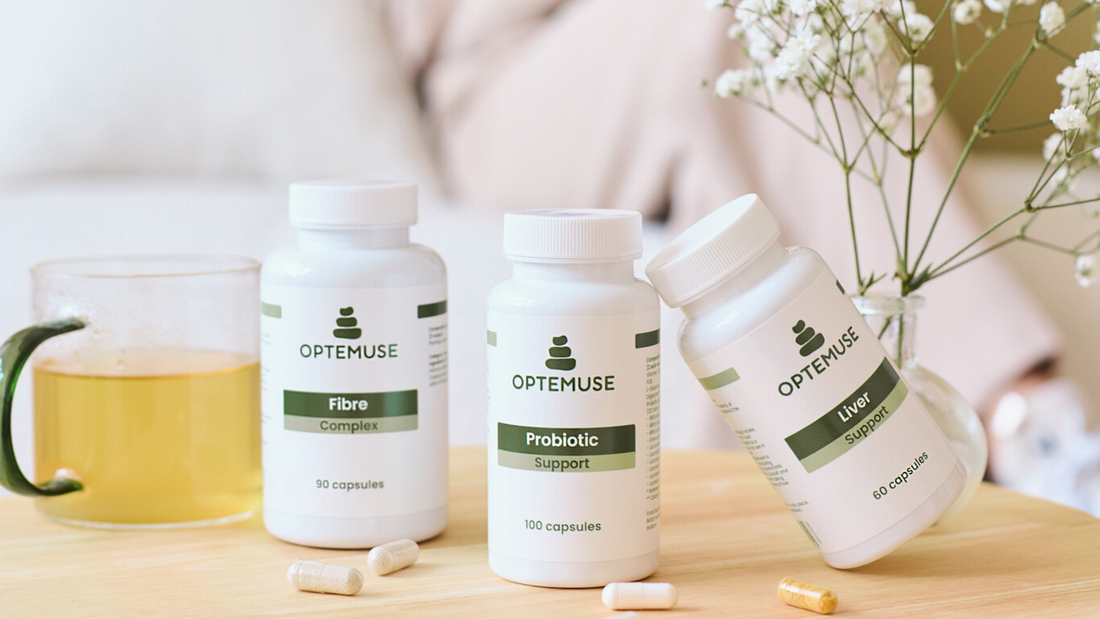
The impact of your gut on your immune system
Share
Did you know there's a strong link between your gut health and your immune system? What happens in your gut not only affects your digestion but also how well your body fights off disease and inflammation.
In this blog post, I'll take you through the fascinating interplay between your gut microbiome and your immune system, and I'll also give you tips on how to naturally support both.
How does your immune system work?
Your immune system is your natural line of defense. It consists of a complex network of cells, proteins, and organs that work together to recognize and eliminate invaders such as viruses, bacteria, and fungi.
When an "invader" enters your body, immune cells trigger a response. For example, B cells produce antibodies that bind to pathogens. Other cells, such as T cells, attack and destroy these marked invaders. This process is also the basis of how vaccines work: your body learns to recognize an "enemy" before it becomes dangerous.
How are your intestines and immune system connected?
Your intestines are home to billions of microorganisms, known as your microbiome . A healthy microbiome forms a protective layer on your intestinal wall and prevents harmful substances or pathogens from entering your bloodstream through leaks in your intestinal wall.
When the balance between good and bad bacteria is disrupted, your immune system can weaken. Your immune system becomes overactive or even exhausted. That's why healthy gut flora is essential for a strong, stable immune system.
Symptoms of a disturbed gut health
How do you know if your gut is out of balance? Look for these signs:
- Bloated feeling after meals
- Stomach pain, cramps or nausea
- Diarrhea, constipation or irregular bowel movements
- Excessive flatulence or gas
- Fatigue or a 'heavy' feeling after eating
These complaints may indicate an overgrowth of harmful bacteria, food intolerances or a damaged intestinal wall and indirectly affect your resistance.
How do you support your gut health and your immune system?
1. Eat a varied, fiber-rich diet
Nourish your gut with whole foods: vegetables, fruits, whole grains, nuts, seeds, and legumes. Prebiotic foods like bananas, asparagus, and artichokes provide nourishment for your beneficial gut bacteria.
2. Take probiotics
Fermented products like sauerkraut, kefir, or kimchi contain live bacteria that enrich your gut flora. You can also supplement this with a high-quality probiotic, such as our Probiotic Support , specially formulated with stomach acid-resistant capsules so the probiotics reach your intestines alive.
3. Limit stress
Chronic stress changes the composition of your microbiome. Daily relaxation, whether it's breathing, yoga, or a walk, helps calm your nervous system and support your gut.
4. Exercise regularly
Daily exercise promotes digestion and strengthens the communication between your gut and brain. Choose what works for you: walking, dancing, cycling, or gentle yoga.
Natural support from within
At Optemuse, we believe in the power of the body, supplemented with pure supplements. These three are my personal favorites when it comes to gut health and a strong immune system:
- Probiotic Support : With multiple scientifically proven strains that help with bloating, gas and resistance.
- Magnesium Citrate : Helps with relaxation, calmness of the stomach and better sleep (which is also essential for your immune system).
- Immunity Support : Naturally support your immune system with echinacea, zinc, and vitamin C.
Finally
A strong immune system starts in your gut. By taking good care of your gut with nutrition, rest, exercise, and targeted support, you give your body the strength to stay balanced. Do you often feel tired, bloated, or ill? Then your microbiome might need some extra love.
Know that with small daily steps you can make a world of difference.
